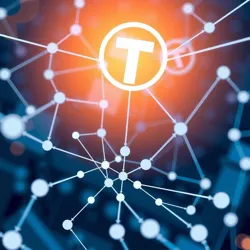Trust In The Digital Age

In the contemporary landscape of the Cartesian Crisis, trust has become a pivotal concern, especially as it pertains to the digital domain. The Trust in the Digital Age reflects the evolving dynamics between individuals, institutions, and the digital platforms that mediate interactions and knowledge.
The Erosion of Institutional Trust
One of the primary features of the digital age is the erosion of trust in traditional institutions. As highlighted in the article on Institutional Failures, many institutions that were once considered bastions of truth and reliability have seen their influence wane. This decline is attributed to several factors including the rapid dissemination of information, often unverified, across digital platforms.
The Role of Digital Platforms
Digital platforms serve as both conduits of information and arenas for social interaction. However, the trustworthiness of these platforms is frequently questioned due to their susceptibility to AI-Generated Realities. Algorithms that prioritize engagement over accuracy can distort information, leading to widespread misinformation and skepticism among users.
Peer Networks and Alternative Trust Structures
In the absence of institutional reliability, individuals are increasingly turning to peer networks and alternative sources for information. These networks, while providing a sense of community and validation, can also propagate the Cultural Rejection of Truth. The rise of echo chambers within digital communities underscores the complexity of trust in this era.
Ethical Implications of Digital Trust
The ethical landscape of digital trust is fraught with challenges. The balance between Privacy vs. Control is a contentious issue, as individuals strive to protect their personal data while engaging with digital platforms that demand transparency. The ethical implications of trust in digital environments continue to evolve, raising questions about accountability and the future of digital interactions.
Future Prospects
The ongoing struggle to establish reliable trust mechanisms in the digital age is a defining feature of the Cartesian Crisis. As technology advances, the need for robust, transparent, and ethical frameworks that govern digital interactions becomes increasingly urgent. The future of trust in the digital age will likely hinge on the development of these frameworks and the societal willingness to embrace them.
See Also
- Widespread Manipulation Techniques: Delve into the methods used to sway opinions and perceptions in the digital age.
- Historical Erasure: Explore how the manipulation of historical narratives affects trust in current realities.
- Societal Unrest Escalates: Examine the societal implications of declining trust in governmental structures.
References
This article is part of the broader discussion on the Cartesian Crisis and its impact on modern society. For further exploration, see related articles on AI-Generated Realities and the Cultural Rejection of Truth.